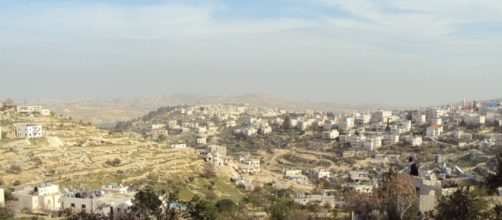The Palestinians have been divided for years, as two very different factions have tried to find a way forward to create a separate state for the Palestinians within the Middle East. Yet, this division has resulted in a weakened position for the Palestinians, as the international community views the division as a lack of commitment to move forward.
Yet, it appears that the Palestinians are taking steps to change that. Palestinian Prime Minister Rami Hamdallah visited Gaza for the first time in almost two years on October 2. This visit could be the first step toward a reconciliation between the two factions, which have made Peace Talks virtually impossible because neither side was willing to compromise with the other.
According to the Guardian, “A delegation led by Abbas’ prime minister, Rami Hamdallah, held a cabinet meeting in Gaza amid difficult negotiations for Abbas’ Palestinian Authority, which runs the West Bank, to take over the administration of Gaza where more than 2 million people live in poverty.”
The Palestinian Authority
The PA is internationally recognized, whereas the Hamas government in Gaza has been ignored internationally, due to the group being deemed a terrorist organization by many international leaders and governments.
The Gulf Today reported that “The UN welcomed the visit, saying it was ‘carefully optimistic’ of ending the split which is seen as a key complicating factor in potential peace talks with Israel.”
Neighboring Egypt, which is a force within the region, played a role in bringing the two sides together.
The pressure to bring the two sides together has continued to increase as Hamas continues to be isolated by the international community. During the time that Hamas has been in charge of Gaza, they have also had three conflicts with Israel, which has also contributed to its isolation.
The Wall Street Journal reported that “Palestinian Authority President Mahmoud Abbas…heralded an agreement brokered by Egypt that will see militant group Hamas cede control of the Gaza Strip to his government, a significant development for the Palestinian national movement but one that faces obstacles to implementation.”
An obstacle to this reconciliation is the fact that Hamas still has its military division in Gaza and that remains a central force in the region.
Israel has not lifted its blockade of Gaza, due to continuing security concerns.
According to the Ahram.org, the United States has also weighed in on the issue of a unified PA. “The United States, which is trying to revive Israeli-Palestinian peace talks that collapsed in 2014, is watching developments closely with the aim of improving humanitarian conditions in Gaza, Jason Greenblatt, U.S. President Donald Trump’s Middle East envoy, said on Twitter…’The United States stresses that any Palestinian government must unambiguously and explicitly commit to non-violence, recognition of the State of Israel, acceptance of previous agreements and obligations between the parties, and peaceful negotiations,’ said Greenblatt.”
What does all this mean for the Middle East?
A united Palestine could mean that peace talks can begin to move forward between Israel and the Palestinians.
This could bring stability to this area of the Middle East, which would then impact the ability of international agencies to focus on other hotspots.
However, other countries within the area, such as Iran, could see this reconciliation as having a negative impact on its standing in the region. Within all these contrary points of view, peace may still be elusive, but the healing of the division within the Palestinian Authority could be the critical and necessary first step to real change within the region.
“Hamas’s relations with Iranian regime darkened following the Syrian civil war, especially after the clashes in Aleppo in early December 2016 which led to retaking the city from the rebels. Hamas issued a statement on December 14, announcing that a genocide has taken place in Aleppo”, writes Al-Monitor. This provokes Iran because of its support for Bashar Al Assad financially and military aids.


